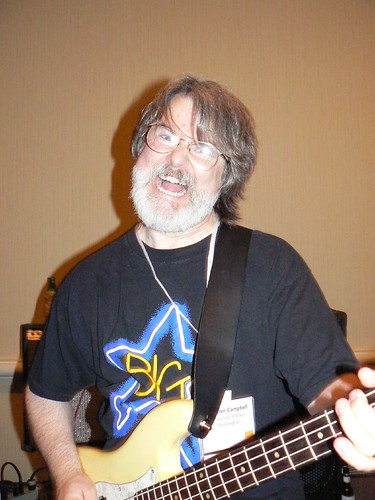.flickr-photo { border: solid 2px #000000; }
.flickr-yourcomment { }
.flickr-frame { text-align: left; padding: 3px; }
.flickr-caption { font-size: 0.8em; margin-top: 0px; }
…but knowing that Gardner Campbell was leading a course entitled Rock/Soul/Progressive: transatlantic crossings in popular music 1955-present, I couldn’t help but reflect on how much this experience would have meant to me had it been possible. As readers of this blog have probably figured out, I share Gardner’s conviction “that careful attention to popular music can open more doors of perception than one usually finds in a course of study.”
One fantastic benefit of this moment in educational history is that I can enjoy an unprecedented amount of access to the process and outcomes of the course, not just the syllabus, but the thoughtful and amusing final projects as well. I’ve also spent a fair bit of time poking around and lurking in the student blogs (aggregated here)… which demonstrate fairly convincingly what a dynamic and effective personal learning platform UMW Blogs has so quickly become.
And now Gardner has posted detailed accounts of his thinking going in, working through, and coming out of the course (parts one and two). Essential reading for anyone who wonders what a gifted academic and teacher experiences when plunging headlong into unknown learning territory. And for some reason, I especially liked the more modest technological reflections of the Coda, which stands as a compelling example of what an open-minded embrace of available tools might make possible:
Laptops: I asked students to bring their laptops with them to class. Almost everyone had one. The few who didn’t had them on order but hadn’t yet received them. Over time, three or four of the sixteen got out of the habit of bringing theirs to class, but the rest constituted a pretty good yield in my view, and enabled some interesting learning opportunities.
One was what I’d expected (and hoped for): instant research journeys, and use of the class wiki for notes and other materials. It was a great day when we used the Internet to discover the explanation for “black Irish” that made sense of Jimmy Rabbitt’s insistence that Dubliners were “black and proud.” When the student at the end of the table found the resource and read it aloud, the entire class was charged with the discovery. That kind of serendipitous inquiry-fest is exactly what ubiquitous computing and connectivity should enable in classrooms–but it takes being alert to the possibilities.
Dr. Campbell is speaking at UBC on March 5 (visitors to the university are welcome to attend, but please do register). You think I’m excited?










